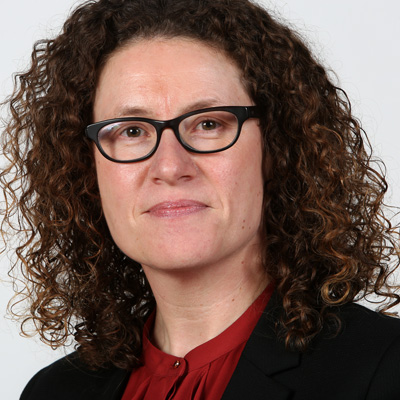
Siobhan Melia
Chief executive
Sussex Community NHS Foundation Trust
Siobhan holds a postgraduate degree in podiatry and a health executive MBA. She has held a number of clinical leadership roles in the NHS. Prior to becoming a chief executive at Sussex Community NHS Foundation Trust, Siobhan held senior management and board positions in another community health provider, was the head of the telehealth division in Telefonica UK and was deputy chief executive and director of partnerships and commercial development at Sussex Community NHS Foundation Trust.
Q: Was there a particular job, opportunity or experience which convinced you to apply for the chief executive role?
I was working as a director at Sussex Community NHS Foundation Trust and had been appointed as deputy chief executive, when, after six weeks my chief executive resigned. I was in a real dilemma about what to do next and after some excellent executive coaching sessions I decided that I would grasp the opportunity, and apply to become chief executive. It was sooner in my career trajectory than I had planned, but I did not want to regret not going for it. The coaching sessions, which were with an independent coach outside of the NHS sector, enabled me to realise that I was ready, and gave me the confidence to go through the assessment process.
Q: What do you think is more important for your performance as a trust chief executive – the background you have or the person you are? Why?
I think it is both. My background is varied, I worked clinically in complex environments, I have managed operational teams and I have held strategy and commercial roles in the NHS. I also worked for Telefonica for two years in the health technology business, and learned a lot about customer relationship management, marketing and commercial development. As a chief executive I draw on all aspects of my career background, but also on who I am as a person. I am motivated to enable teams to make a difference for the patients, children and families that we care for, and that energy helps me to maintain a positive perspective. I am also calm under pressure, and that certainly helps in this job.
As a chief executive I draw on all aspects of my career background, but also on who I am as a person. I am motivated to enable teams to make a difference for the patients, children and families that we care for, and that energy helps me to maintain a positive perspective.
Q: "If I knew then what I know now…" – what is your advice for clinicians thinking about stepping in to a chief executive role?
Seek breadth and challenge throughout your career, and make sure you get experience around the business, financial and commercial aspects of the health sector. Leadership development opportunities are key, especially ones that focus on personal impact, emotional intelligence and personal resilience. So, invest time in your own development and have the confidence to challenge yourself.
Don’t underestimate the power of clinical training and being a clinician – it creates credibility with frontline staff and helps you to stay focused on keeping patients at the centre of what we do. It also means that the skills developed as a clinician around effective communication, teamwork and differential diagnosis are highly transferable, be proud of that.
Q: Have you considered maintaining clinical practice alongside your chief executive responsibilities? And why/why not?
No. I gave up my professional registration at the point where I moved into an assistant director of adults and older people services in a community organisation a number of years ago. I found that I did not have time to undertake clinical practice in a way that could be planned and regular and therefore it was a challenge to maintain professional registration as a podiatrist. Subsequently, in my role as chief executive, I spend time visiting a range of frontline clinical services and listening to patients and our staff, rather than undertaking clinical practice.
Don’t underestimate the power of clinical training and being a clinician – it creates credibility with frontline staff and helps you to stay focused on keeping patients at the centre of what we do.
Q: What support have you had along the way to get to where you are?
In terms of formal training, I completed an MBA while in a senior leadership role and this was a good way to complement my clinical and operational experience and to develop commercial and business acumen. The most pivotal leadership development programme for me was the athena programme, run by The King’s Fund. This gave me insight about personal impact and political awareness that was invaluable. I also developed clarity about my values and beliefs that have helped to shape the leader that I have become.
I have had some coaching sessions more recently that have really helped me to adjust to being a chief executive, and to cope with some of the complex demands of the role.
